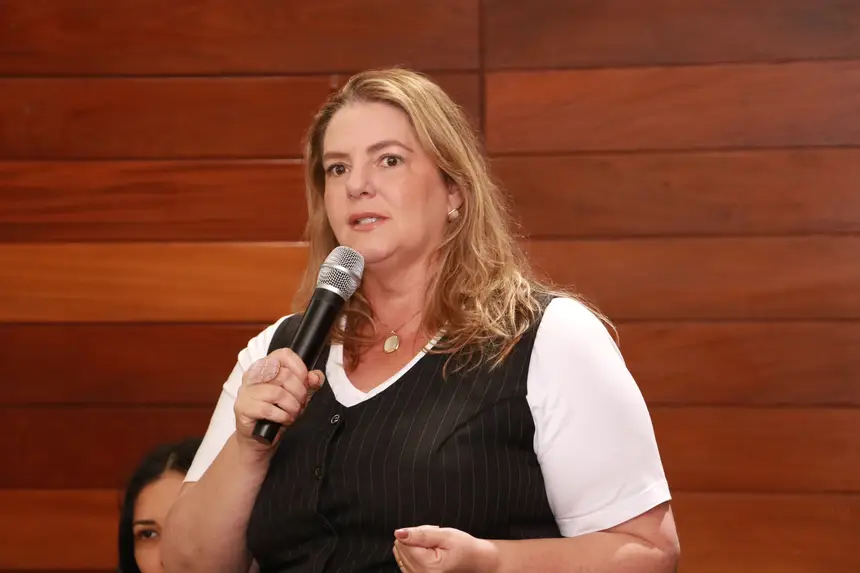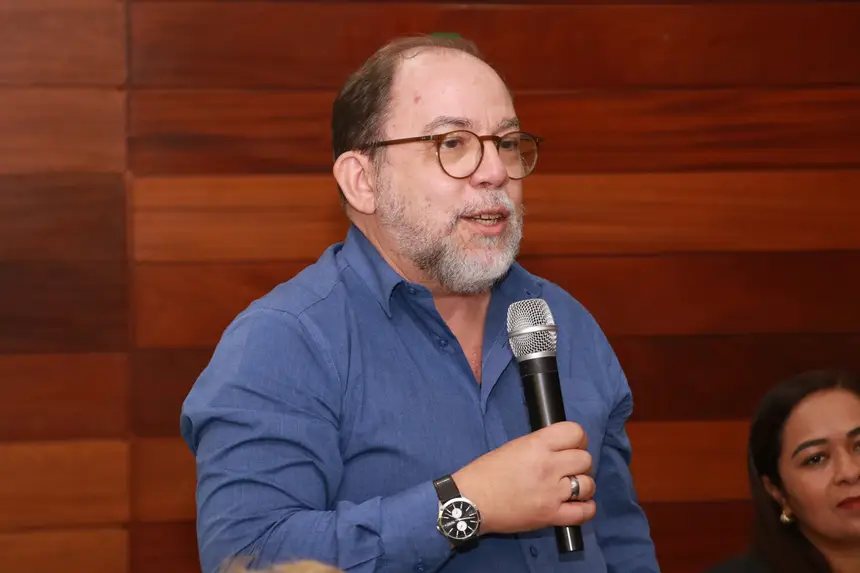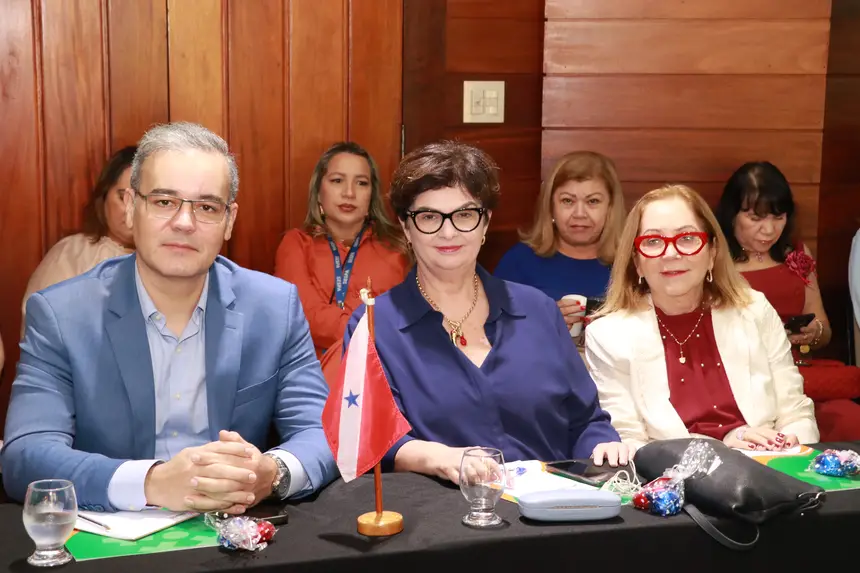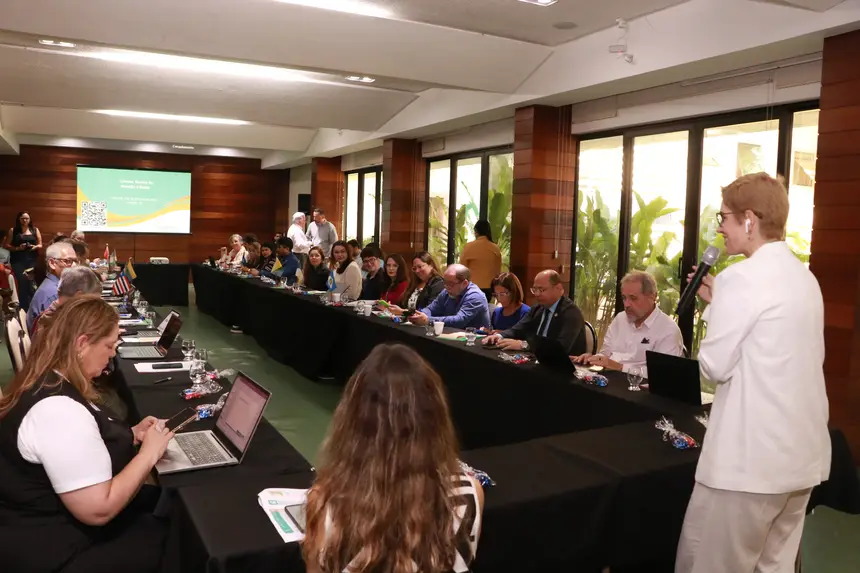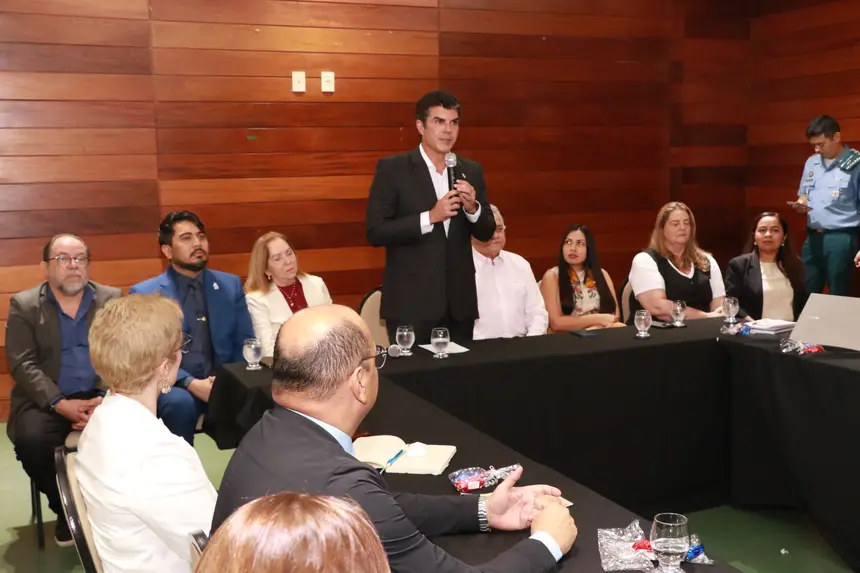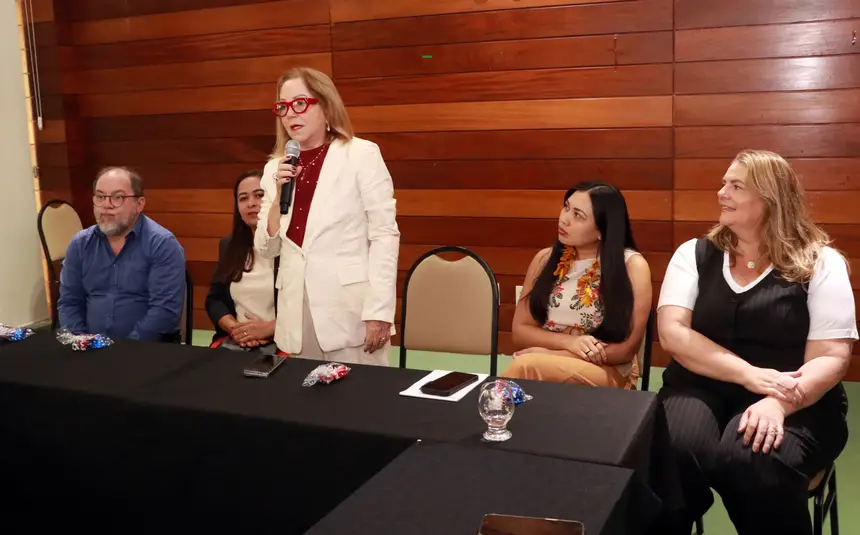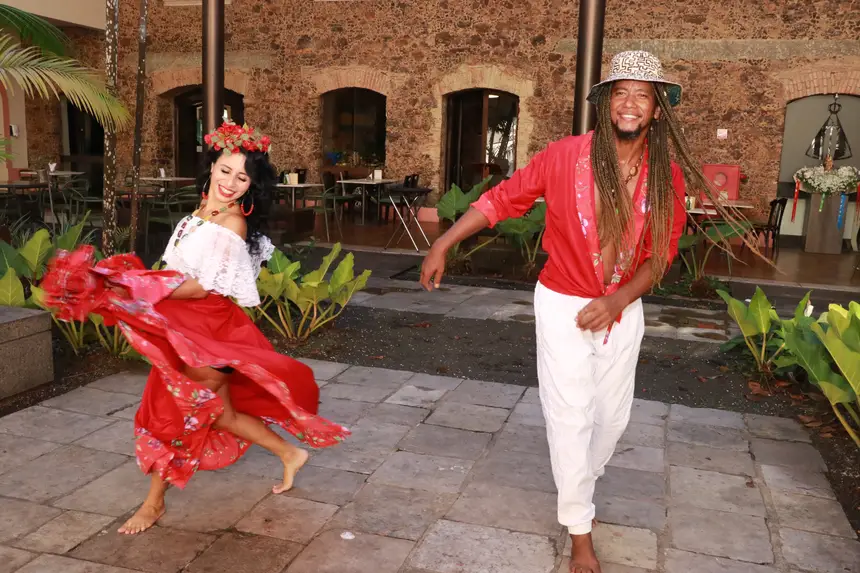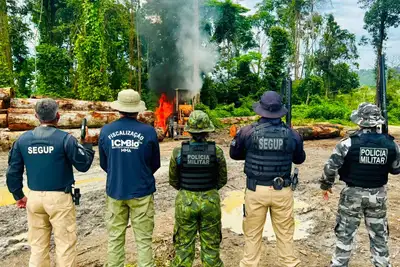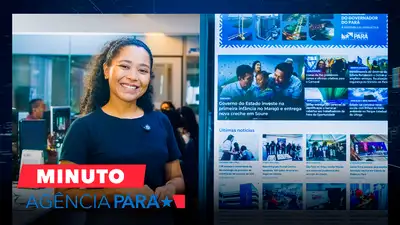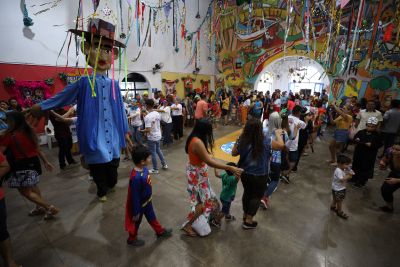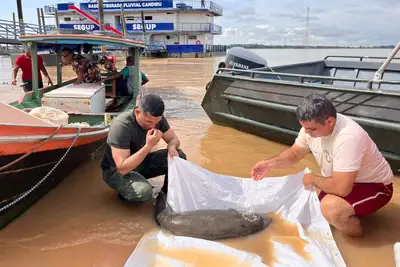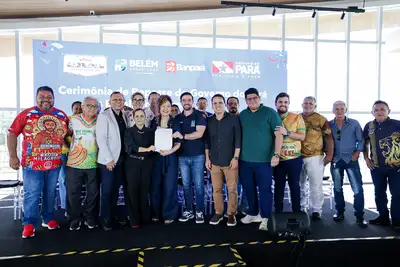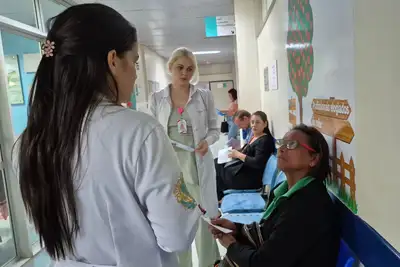Conass Meeting in Belém Discusses Health Care Challenges in the Legal Amazon
Health secretaries from Amazonian states, representatives from the Ministry of Health and the National Council begin to build proposals to strengthen the SUS in the region
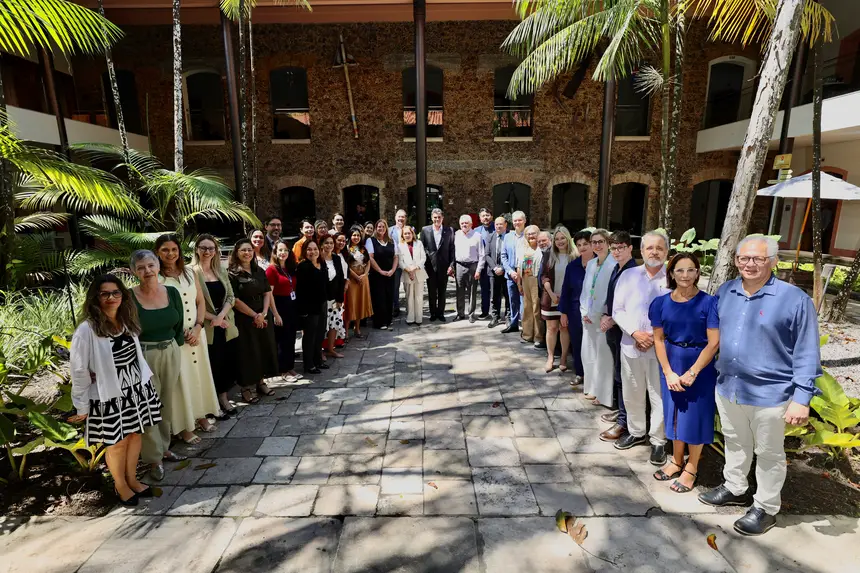
In Belém, the meeting of the Technical Chamber of Health Care, of the National Council of Health Secretaries (Conass), began on Monday (14), held in partnership with the State Department of Public Health (Sespa) at the Atrium Quinta de Pedras Hotel. The event brought together representatives from the state secretariats of the Legal Amazon to discuss challenges and build concrete proposals to strengthen the Unified Health System (SUS) based on regional specificities.
The first day of the meeting was attended by the governor of Pará, Helder Barbalho, reinforcing the State's commitment to strengthening public health in the Amazon. Also present were the State Secretary of Public Health, Ivete Vaz; the Deputy Secretary of Administrative Management of Sespa, Edney Mendes Pereira; the Deputy Secretary of Health Policy Management, Heloísa Guimarães; representatives from the Ministry of Health, Conass, the Indigenous Health Secretariat, and the Council of Municipal Health Secretaries (Cosems).
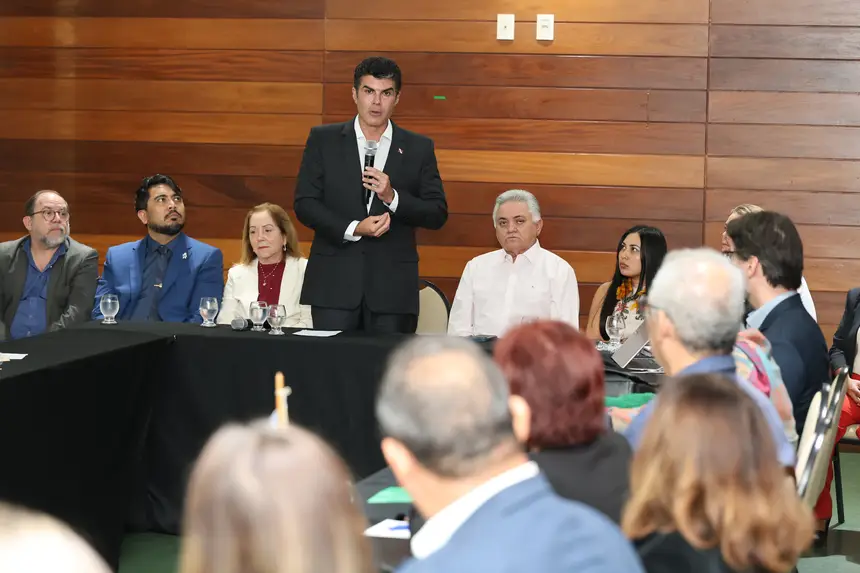
During the opening, Helder Barbalho highlighted the symbolism of hosting the meeting in Pará, especially at this moment of Amazon prominence. “It is a joy to host such an important moment, bringing together people who build public health in Brazil. The integration between municipalities, states, and the Union is essential for us to jointly contribute with effective health actions for all Brazilian society,” said the governor of Pará.
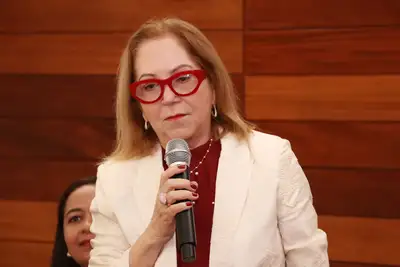
In welcoming the participants, Secretary Ivete Vaz emphasized the historical importance of the meeting. “It is with great honor and joy that we receive Conass in our region. It is the first time we see a technical meeting like this being held in the Amazon. It is a symbolic and, at the same time, strategic moment for us to advance together in concrete solutions to the challenges we face daily, such as logistics, the retention of professionals, and specialized care in the most remote areas,” said the manager.
Debates - On the first day of the event, central themes were presented, such as mapping specialized care in the SUS, the perspectives of action from the Indigenous Health Secretariat (Sesai), and care in riverine territories, where rivers are the main means of transportation. Regional experiences and solutions were also discussed, such as the decentralization of surgeries in Acre, the universalization of Samu (Mobile Emergency Care Service) in Pará, hospital contracting in Rondônia, and oncological care in Maranhão.
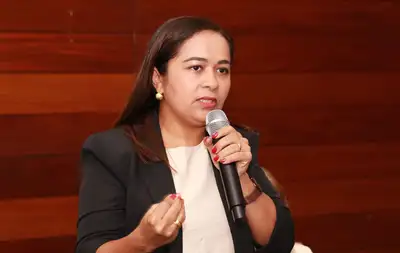
The president of Cosems-Pará, Jucineide Barbosa, highlighted the financial limitations faced by municipalities and the need for policies adapted to the Amazonian reality. “Most of our municipalities survive on federal and state transfers. Many do not have significant own revenue, which makes it even more difficult to ensure equitable access to health in such extensive and isolated territories. It is essential that the regionalization plan truly listens to the states and municipal managers,” said Jucineide Barbosa, advocating that meetings like the one held in Belém be permanent spaces for listening and joint construction.
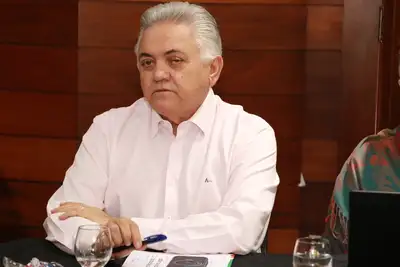
Integration - The executive secretary of Conass, Jurandi Frutuoso, reinforced the objective of the technical chamber. “Conass has been working hard to keep the North region at the center of discussions, considering the unique challenges it presents. This meeting aims precisely to formulate joint strategies between states and the federal government to address these issues in a structured and integrated manner,” he declared.
Representing Conass in the North region, the Secretary of Health of Amazonas, Nayara Matsudi, highlighted the unity of the states in the search for more effective public policies. “We are building an agenda that dialogues with the reality of the population of the Legal Amazon. The presence of the Ministry of Health and Conass here demonstrates that we are on the right path to consolidate regional policies that do not treat Brazil as a single reality, but respect its multiple Amazons,” she emphasized.
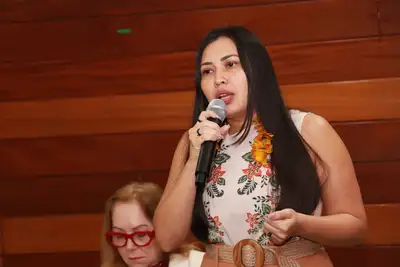
The Secretary of Indigenous Health of the Ministry of Health, Lucinha Tremembé, reinforced the importance of discussing the cultural and organizational specificities of indigenous health. “It is a unique opportunity to plan the integration of policies and improve assistance to the indigenous population, respecting their culture and way of life,” she said.
COP 30 - The head of the Interfederative and Participative Management Directorate of the Ministry of Health, André Bonifácio, highlighted the complexity of the region and the importance of building customized proposals. “There is not a single Amazon, just as there is not a single Brazil. If we get it right here, we get it right anywhere. The agenda built by you is promising, and we want that by COP 30, we can present concrete results arising from this collaboration between states and the federal government,” he stated.
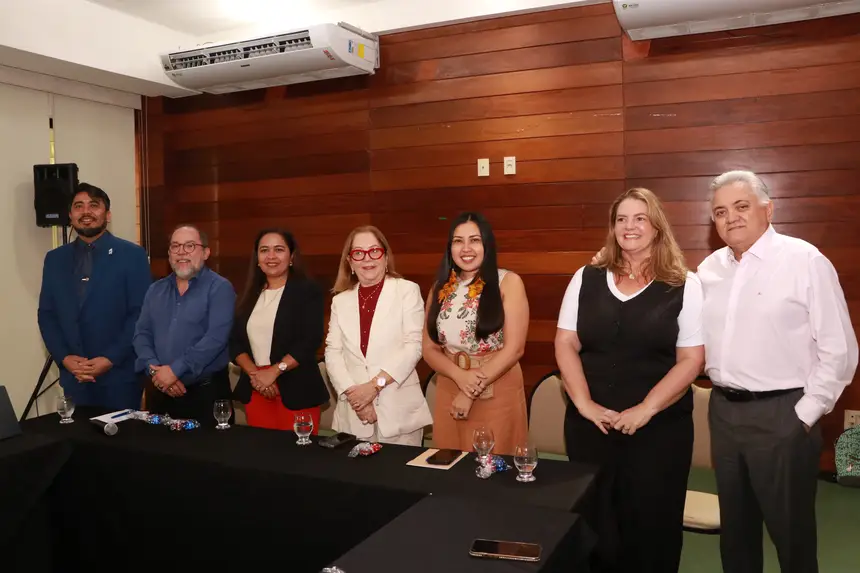
The agenda of the Technical Chamber continues this Tuesday (15), with a meeting on Combu Island (insular area of Belém), where representatives from the 27 state secretariats will present successful experiences and participate in the launch of a virtual platform from Conass, with regional practices.
On the last day, there will be a technical visit to the Integrated Center for Inclusion and Rehabilitation (CIIR) in Belém to closely observe initiatives that can serve as models for other states.


